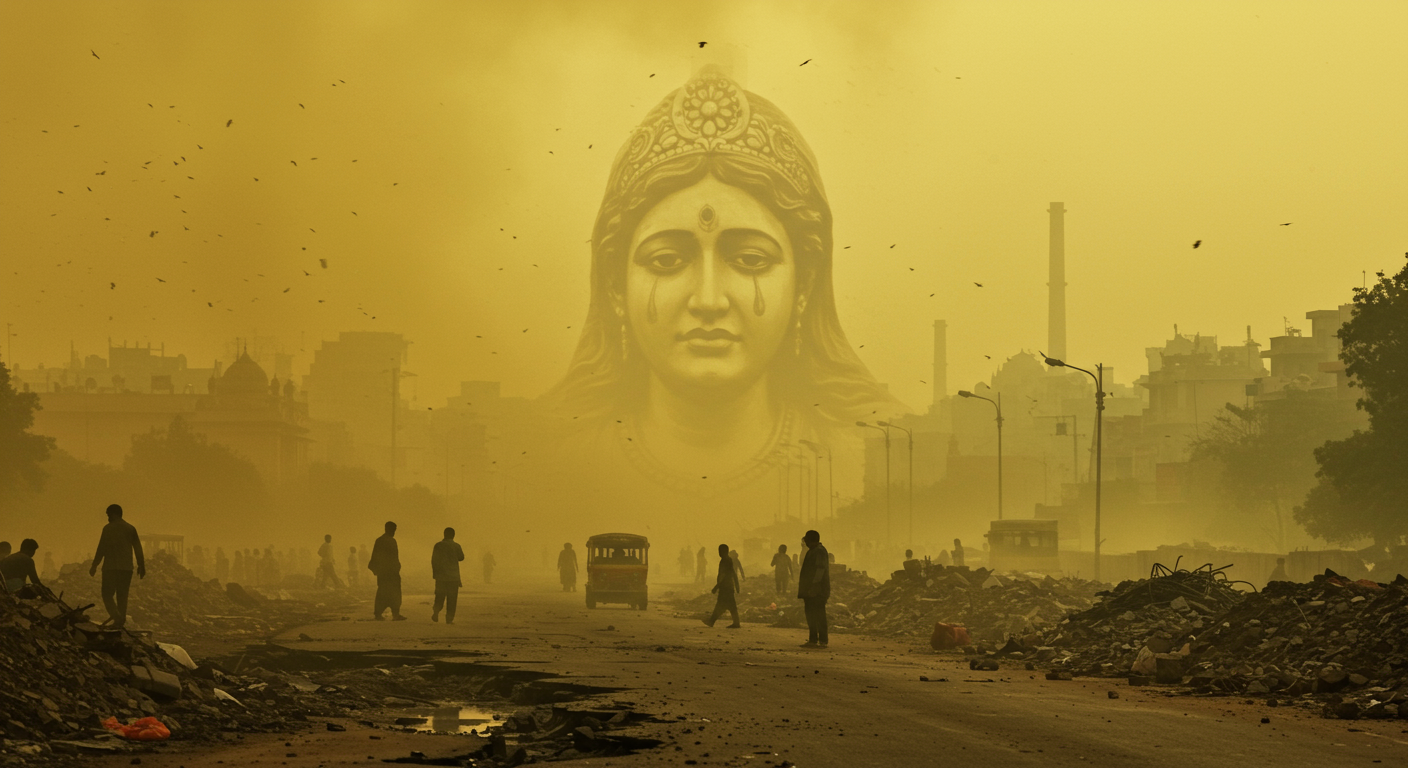
The air in Delhi is once again a harsh reminder of a persistent crisis. The recent news that the Air Quality Index (AQI) stands at a staggering 311, with 26 out of 38 stations in the 'very poor zone' and Bawana being the most polluted, paints a grim picture. It's a reality that quite literally takes one's breath away, and it's a stark reflection of deep-seated issues that continue to plague our capital.
I’ve been observing this pattern for years, and it brings to mind an earlier reflection of mine on the enduring challenges faced by our nation. Back in 2013, when discussing the "State of the World's Mothers" report, I posed the question, "How long will Mother India continue to suffer?" Nothing to Celebrate This Mother's Day. Today, that question resonates with a renewed, urgent intensity, not just for the well-being of mothers, but for every citizen breathing the poisoned air of Delhi.
The core of the problem, as highlighted by countless citizen complaints to the Public Works Department (PWD) and other agencies like the CPCB, CAQM, MCD Delhi, and Delhi Jal Board, is multi-faceted. From broken roads and footpaths to massive potholes and unchecked construction debris, the neglect is palpable. Residents like Vikas Dabas, Akshay, Doctor Uncle Pranav Gupta, Gulshan Kumar Gupta (gulshan_gupta@mahindrasatyam.com), Sanjay Kumar, Adnan Aziz, and many others, are consistently voicing their frustrations. We hear complaints detailing roads so broken there are "more potholes than road left," and pleas like "it is very difficult to even breathe as dust is everywhere." These aren't isolated incidents but a collective outcry, frequently tagging officials and leaders such as Prime Minister Narendra Modi (n.modi@india.gov.in), CM Arvind Kejriwal (arvindkejriwal@aamaadmiparty.org), Lieutenant Governor, P. Sahib Singh, Rekha Gupta, Atishi, Gopal Rai, Manoj Tiwari, and Nitin Gadkari in their urgent appeals.
It’s disheartening to see the same problems persist, year after year. There are numerous complaints about unattended debris after road work, unpaved surfaces, and damaged infrastructure that not only causes traffic jams and vehicle damage but significantly contributes to this hazardous air quality. Individuals like Imran Saifi, a social worker, and Atul Ranjit Kumar, an RTI and road safety activist, consistently highlight these systemic failures, even calling out a "lack of administrative will or accountability."
This continuous struggle, the sheer volume of unattended issues and the palpable frustration of the citizens, suggests a deeper systemic challenge. It's a situation that makes me reflect on another thought I shared years ago regarding Anna's achievements, where I emphasized the "purity of ‘means’ to achieve noble ‘ends’" Anna’s Achievements Articulated. If our means—our daily governance, maintenance, and responsiveness—are fractured, how can we ever hope to achieve the noble end of a healthy, livable city? The current state of Delhi is a painful testament to this disconnect.
We need a fundamental shift. We need accountability that runs deeper than merely logging complaints. We need proactive solutions, timely execution, and a genuine commitment to the health and safety of our citizens. The continued suffering of Delhi's populace from a preventable crisis is a scar on the face of our nation, one that demands immediate and comprehensive healing.
Regards,
Hemen Parekh
Of course, if you wish, you can debate this topic with my Virtual Avatar at : hemenparekh.ai






No comments:
Post a Comment